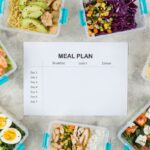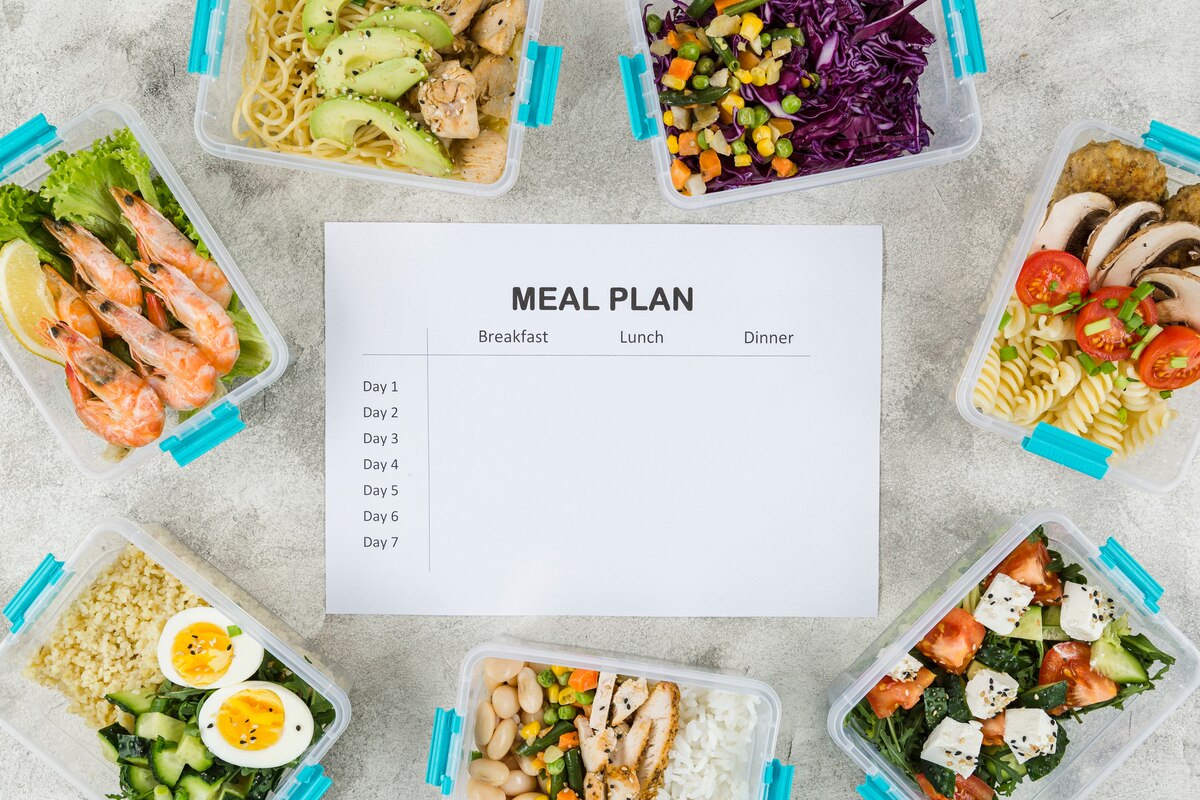Besides exercise, an active lifestyle needs a good diet. Whether you’re a competitive athlete or a daily workout, knowing how to fuel your body may improve your performance and well-being. Three essential dietary suggestions to energize and perform at your best:
Balanced Macronutrient Intake
Everyone needs a balanced diet, but athletes and energetic people need it more. Your body requires a combination of macronutrients, carbohydrates, proteins, and fats to generate energy, repair muscle, and recover.
Carbohydrates
Carbohydrates are the body’s principal fuel source. They fuel brief bursts of intensive exertion and protracted physical activity. Choose complex carbs like whole grains, fruits, veggies, and legumes for sustained energy and nutrients.
Proteins
Protein is needed for muscle repair and development in athletes and frequent exercisers. I ate chicken, fish, eggs, tofu, lentils, and dairy to recuperate and build muscle.
Fats
While lipids are typically used, they are essential for health and performance. Fats from avocados, nuts, seeds, and fatty fish give concentrated energy and aid nutritional absorption. Maintain a balanced intake of unsaturated fats and reduce saturated and trans fats. A balanced macronutrient diet fuels physical activity, muscular recovery, and performance.
Hydration Is Key
Hydration is essential for health and athletic performance. Fluid consumption before, during, and after exercise is crucial since even minor dehydration may impair performance and cognition. Sports drinks may restore electrolytes and minerals lost during vigorous activity, but water is better.
Concerning thirst signals and urine color, pale yellow urine suggests enough hydration, whereas dark yellow urine may indicate dehydration. Fruits and vegetables, in addition to water, may help you stay hydrated. Hydrating foods include watermelon, cucumbers, oranges, and strawberries. Maintaining performance and avoiding dehydration requires a hydration plan suited to your exercise level and surroundings.
Timing Your Nutrition
While what you eat is essential, when you eat may also affect performance and recovery. Timing meals and snacks improves energy, muscle regeneration, and recovery.
Pre-workout:
Pre-workout nutrition is essential for energy and performance. About 1-3 hours before exercise, have a balanced breakfast or snack with carbs, protein, and a little healthy fat. This time allows for proper digestion and nutrient absorption, fueling your exercise.
During Workout:
Consuming carbs during activity lasting more than 60–90 minutes may assist in retaining energy and avoid exhaustion. Sports beverages, energy gels, or readily digested foods like bananas or energy bars offer excellent nourishment for extended exercises.
Post-workout:
Refuel with carbs and protein after exercise to enhance muscle repair and glycogen replenishment. Post-workout meals and snacks should be eaten within 30-60 minutes to maximize recovery and muscle rebuilding.
Nutrient Timing For Performance Enhancement
Food timing optimizes performance, recovery, and training responses by timing food intake around activity. While diet quality and quantity are essential, scheduling meals and snacks may improve athletic performance and fitness objectives.
Pre-exercise Nutrition
A balanced lunch or snack before exercise fuels your body and boosts performance. Your pre-workout meal time and composition should be based on your preferences digestive tolerance and training kind and intensity. Try various meal times and combinations to discover your ideal schedule.
Intra Workout Nutrition
Consuming carbs and electrolytes during exercise may assist in maintaining blood sugar, prevent exhaustion and preserve performance depending on length and intensity. Energy gels, sports drinks and homemade snacks like dates or dried fruit may feed your exercises and boost your endurance.
Post Exercise Recovery
Refuel with carbohydrates and protein after exercise to rebuild muscle, replace glycogen and recuperate. Within an hour after exercise eat a 31 or 41 carb to protein supper or snack to maximize recovery and muscle adaptation. You may optimize exercise benefits, speed recovery and improve athletic performance by scheduling your nutritional intake around exercises.
Individualized Nutrition Strategies
Although basic nutrition standards are a good starting point for fitness, genetics, metabolism, training objectives, and food choices affect your nutritional needs. Thus, a tailored diet is essential for performance and fitness objectives.
Personalized Macronutrient Ratios
The ideal macronutrient distribution is a starting point, but customizing your ratios to your objectives and tastes may improve performance and body composition. To determine the perfect carbohydrate, protein, and fat ratio for energy, satiety, and performance, experiment.
Hydration Strategies
Body size, perspiration rate, activity intensity, and surroundings affect hydration demands. Monitor your fluid intake, pay attention to thirst signals, and modify your fluid intake based on sweat losses and electrolyte demands to create a tailored hydration plan.
Supplementation Considerations
Whole foods should be your basis but tailored supplements may help with vitamin deficits performance and healing. Discuss supplementing with a doctor or sports nutritionist to decide whether it is right for you and which supplements meet your demands. Customizing your nutrition plan to your physiology and preferences may boost performance, enhance training and fuel your fitness quest for years.
Mindful Eating Practices
Mindful eating is easy to miss in the fast paced fitness and sports world. However knowing your food choices and habits may improve your digestion well being and connection with food.
Eating With Intention
Consider your hunger nutritional requirements and eating intent before reaching for a snack or meal. Eating purposefully helps you avoid mindless eating, pay attention to your body hunger and fullness signs and make deliberate decisions.
Savoring Your Food
Speeding through meals without enjoying their tastes and sensations in our busy lives is easy. Slow down, chew and enjoy each mouthful to practice mindful eating. Taste, smell and mouthfeel are important while eating.
Conclusion
Nutrition is essential for physical recovery and reaching goals. You can take care of your health and fitness by following the nutrition tips in this piece which include drinking enough water planning your meals using personalized strategies and eating with awareness. Stick with this road and change as needed so pay attention to your body and celebrate your progress. Take care of your health keep your energy up and enjoy your busy lifestyle.










